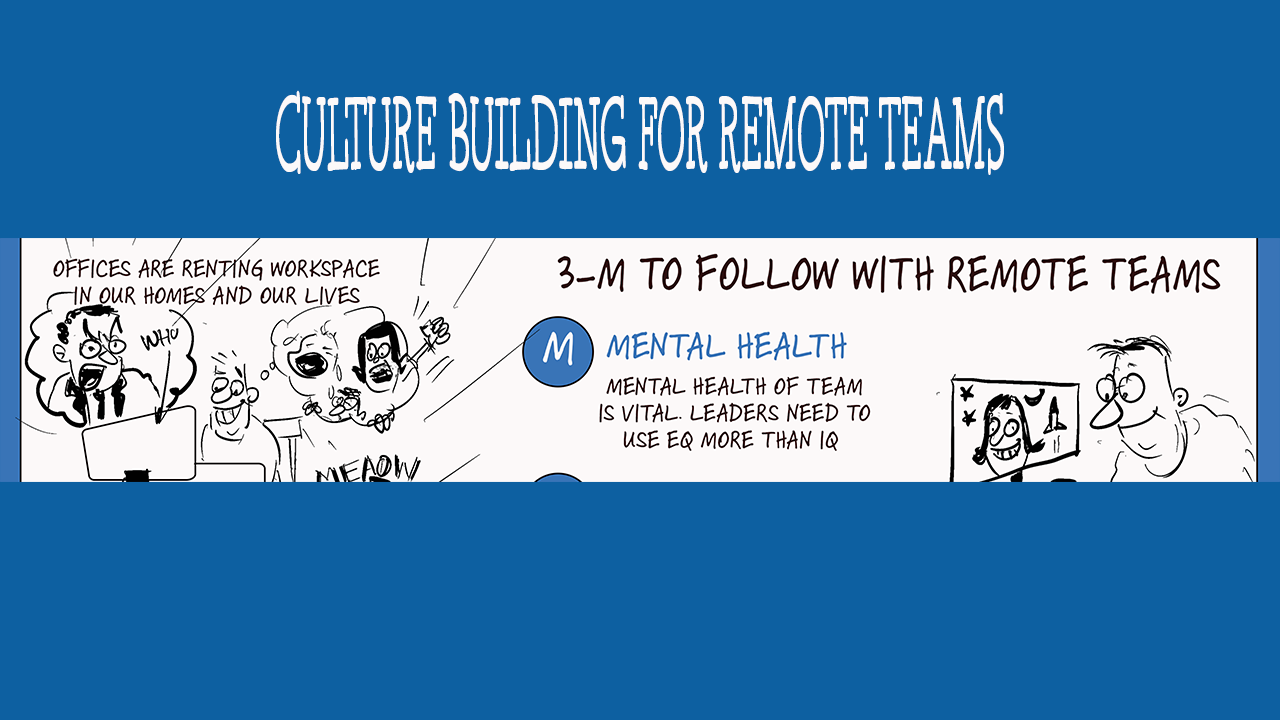Abhijit Bhaduri’s Blog
I write about careers, skills and the world of work. The cartoons and sketches are mine.

Culture Building For Remote Teams
Culture Building for hashtag#remoteteams
I was invited by LinkedIn News India to join Pallavi Pareek (She/They) and Ankit Vengurlekar (he/him) to discuss this topic. This is a special edition of my hashtag#newsletter
Three Ms That Matter (The other two are explained in the newsletter)
Mental Health: This matters HUGELY in case of a remote work culture. Build the skills of the managers to recognise emotions like grief, stress, burnout etc.

The challenge of all-male founding teams
Many startup founding teams can trace their origins to the college campus. A bunch of Dreamers get together to build the organisation. Without a diverse talent pool, the ideas cannot be executed. After all you cannot hire someone who has not applied to your company.

Decode Organisation Culture Like An Anthropologist
Anthropologists decode unfamiliar cultures. Learning about their tools can be helpful for everyone because the same words can have totally different meanings in a different context or society.

Can culture be benchmarked?
I was once talking to the founder of a startup who wanted to build the culture of Google in his firm. He wanted to benchmark the ‘best practices’ of Google’s culture of innovation and that is how he implemented this policy in his 50-person startup. Every employee in that tiny startup had to work on a personal project. Two months later a few employees came to the founder and asked for permission to work from home so that they could work together undisturbed on a secret project they had come up with.

Talent, mentors & 'No Rules Rules'
Can you find a virtual mentor even as you are locked up at home? That is what elite universities provide - great teachers and great mentors. Does that justify the premium they are paid? If you are NOT from an elite institute, is there any way you can compete? Yes, and it is something you can do today.

Abhijit's Sketchnotes No 15
A personal brand is the degree of trust others have in your ability to do what you say. That happens when others say what you do.

9 Dimensions of Organizational Culture Employees Care About
Repairing a broken culture takes much longer. A number of start-ups laugh at these needs of articulating values. Quite often the founding team gets together and chooses values that support revenue growth but ignore elements like diversity, respect etc that they think comes in the way of achieving scorching rates of growth. There is no doubt that it is well worth the investment.

Culture Eats CEO For Breakfast
Travis had described the 14 values as a “philosophy of work” that Kalanick and chief product officer Jeff Holden, an Amazon vet, had spent hundreds of hours putting together. The values were built on a world view that there was room for only one ride sharing company in the world. There was no doubt that it demolished the taxi service companies that used to limit the supply of cabs to be able to charge arbitrary prices. Supply of cabs was restricted keep demand higher than supply. Uber demolished all this.It was built on a view that for me to succeed I must kill my peers. The value of “principled confrontation” was designed to encourage employees to challenge authority without fear. On the ground, it translated to bullying the weak colleague.

Posters don't shape culture - leaders do
Before the founding team makes their first hire, they must ask what behaviors the candidate must display and assess against them. Assessing for values impacts the culture of the organization. Strategy is on paper, whereas culture determines how things get done.

Changing Organizational Culture
Organizational culture is what we call the habits of an organization. These are ways in which people behave spontaneously especially when they are unsupervised. When everyone starts behaving in a similar manner consistently, we say that the organization has a strong culture. The new members of the organization quickly fall in line. They watch everyone around them and learn how to behave in most commonly occurring situations.

Why is company culture hard to emulate
Apple and Samsung trade charges of intellectual property infringement. But you have never heard of anyone stealing the culture of another company. Culture is a proprietary secret that is hard to hide because every employee knows what it is. Yet, even after you know everything about a company's culture, it is impossible to replicate.

Do You Need A Chief Culture Officer for Your Organization
The culture of a company is just the invisible set of norms that guide the behavior of everyone in the team. It is not visible to those who have been there for a while and have accepted the way things get done in the organization.


Building Org Cultures Through Storytelling
THE Tale, the Parable, and the Fable are all common and popular modes of conveying instruction. The Tale is a story either founded on facts, or sometimes just a figment of imagination. There are no moral lessons expected to be learned. The Parable is intended to convey secret meanings. Fables are intended to impact human behavior through the stories and the characters. Good and bad characters are clearly demarcated. Aesops fables have become a part of our everyday language. The story of the thirsty crow dropping pebbles in a pitcher to raise up the level of water is one of the first lessons in innovation we learned. The moral of the story is explicitly stated at the end eg "Necessity is the mother of invention" in case of the Crow and the Pitcher story.

